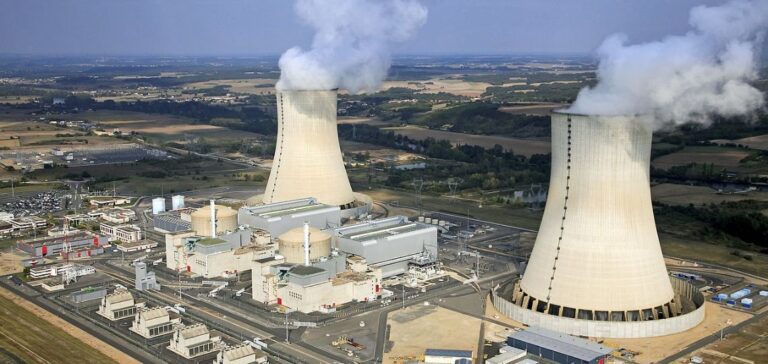France: the demand for low-cost nuclear electricity offered by EDF through the Arenh mechanism (Regulated Access to Historic Nuclear Electricity) continues to exceed the regulatory caps. The Commission de régulation de l’énergie (CRE) revealed that alternative suppliers requested a total of 134.93 terawatt-hours (TWh) for 2025. This figure represents an allocation rate of 74.12%, meaning that not all requests will be met.
An attractive price for alternative suppliers
In France, Arenh obliges EDF to sell part of its nuclear production at a regulated price of €42 per megawatt-hour (MWh), a particularly competitive rate compared to current market prices. This mechanism benefits alternative energy suppliers by offering them a less costly source of supply, contributing to their competitiveness in the national market. However, the electricity available through this mechanism is strictly capped at 100 TWh per year, which accounts for less than one-third of EDF’s total nuclear production.
Increase in demand for 2025
The demand for 2025 is up by 3.5% compared to the previous year. This increase is described as “consistent with the growth in the market share of alternative suppliers” by the CRE. These suppliers are seeing their customer base grow, pushing them to request more low-cost electricity to meet the rising needs of their consumers.
Towards the end of the Arenh mechanism
The Arenh mechanism, in place since 2011, is scheduled to end on December 31, 2025. From 2026 onward, EDF will be required to sell its entire electricity production on the markets. This transition presents strategic challenges for the French government and energy sector stakeholders, who are working to establish a suitable replacement mechanism. The goal is to maintain a balance between competitive demands and energy price stability.
Implications for EDF and the energy sector
This situation highlights the challenges EDF faces. The company must balance its regulatory obligations while continuing to invest in maintaining and developing its nuclear fleet. Meanwhile, alternative suppliers rely on Arenh to remain competitive amid volatile energy markets.
The future of the regulatory framework for nuclear electricity in France remains a subject of debate, both for its impact on competition and its role in the national energy transition.





















